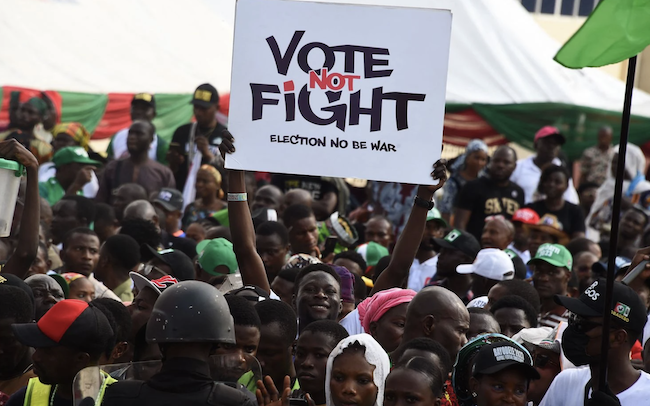Brace for elections: 40 countries to cast ballots in 2024
In 2024, the world is gearing up for a wave of elections in over 40 countries, representing 41% of the global population and 42% of the world’s GDP.
This political frenzy is anticipated to bring about significant changes with potential ripple effects on geopolitics, economies, and international relations.
More voters than ever before will be exposed to global elections, which will highlight the condition of democratic.
Tom Standage, a senior editor for ‘The World Ahead’ in the Economist, a London based publication, estimates that these election-related nations are home to about 4.2 billion people, which is more than half of the world’s population for the first time.
However, according to Tom Standage, there won’t always be greater democracy because many elections won’t be fair or free.
From Asia to the Americas, and Europe to Africa, nations of varying sizes and influence are set to choose new leaders, setting the stage for what experts believe could be one of the most tumultuous years in recent history.
Key takeaways:
- Geopolitical uncertainty: With ongoing conflicts, including two wars and escalating tensions between the U.S. and China, 2024 is poised to be a highly consequential year. Stanford University’s Amy Zegart emphasizes that uncertainty about rules, interest rates, market movements, and government policies will pose challenges for businesses globally.
- Global competition for resources: Beyond the political landscape, governments and companies are engaged in a fierce global competition to secure raw materials for the transition to cleaner energy. This race adds another layer of complexity to the geopolitical dynamics, influencing policy decisions and creating uncertainties for governments and multinational corporations.
- Elections across continents: The nations heading to the polls in 2024 include resource-rich countries like Indonesia and Venezuela, politically unstable regions like South Sudan, and geopolitical hotspots such as Taiwan and Pakistan. The diversity of the countries involved underscores the global impact of these elections.
Notable elections:
Asia:
- Taiwan: The presidential election could set the tone for U.S.-China relations. Tensions may escalate if Vice President Lai Ching-te emerges victorious.
- India: With two wars ongoing, a loss for Prime Minister Narendra Modi could have far-reaching implications, given India’s role as a counterweight to China.
- Bangladesh, 7th January
- Bhutan, 9th January
- Cambodia, 25th February
- Indonesia , 14th February
- South Korea, 10th April
- Pakistan, 8th Februaury
- Taiwan, 13th January
Americas:
- Brazil: 6th October.
- United States
- Brazil, 6th October
- Canada
- EL Salvador, 4th February
- Dominican Republic, 19th May
- Mexico, 2nd June
- Panama, 5th May
- Uruguay, 27th October
- Venezuela
Europe:
- United Kingdom: Local elections in May, impacting the geopolitical stance in the post-Brexit era.
- Russia: Presidential election on 17th March, with potential repercussions for Russia’s foreign policy.
- Austria
- Belarus, 25th February
- Belgium, 9th June
- Bosnia and Herzegovina, 6th October
- Croatia, December
- European Union, 6-9th June
- Finland, 28th January
- Germany, 1st September
- Georgia, 26th October
- Ice land, 1st June
- Lithuania, May
- Moldova
- North Macedonia
- Portugal, 10th March
- Romania, November
- Russia, 17th March
- Slovakia
- Spain
- Turkey, March
- Ukraine
Africa:
- South Africa: Facing the possibility of the ruling ANC losing its majority for the first time since the end of apartheid.
- Algeria
- Botswana
- Chad
- Comoros, 14th January
- Ghana, 7th December
- Mauritania
- Mauritius
- Mozambique, 9th October
- Namibia
- Rwanda, August
- Senegal, 25th February
- Somaliland, November
- Tunisia
- South Sudan
Insights for Uganda 2026 and Kenya 2027:
As the world undergoes these transformative elections, the implications for Uganda’s 2026 and Kenya’s 2027 elections cannot be ignored. The outcomes of global elections could influence international alliances, trade policies, and geopolitical dynamics, indirectly shaping the political and economic landscapes of countries like Uganda and Kenya. Businesses and policymakers in East Africa should closely monitor these global events, as they may provide insights into future trends and challenges that could impact the region.
In conclusion, 2024 is not just a year of elections; it’s a year of global shifts and potential game-changers. The outcomes will resonate far beyond the borders of the countries casting their votes, shaping the trajectory of international relations and setting the stage for future geopolitical and economic landscapes.
















